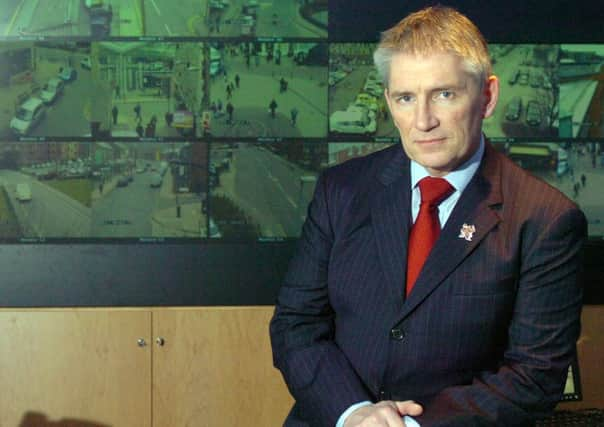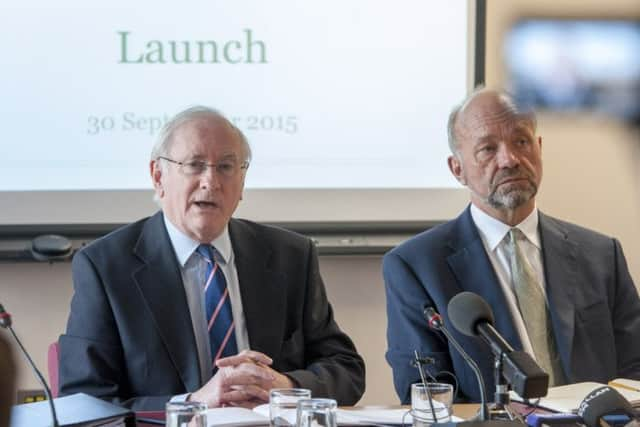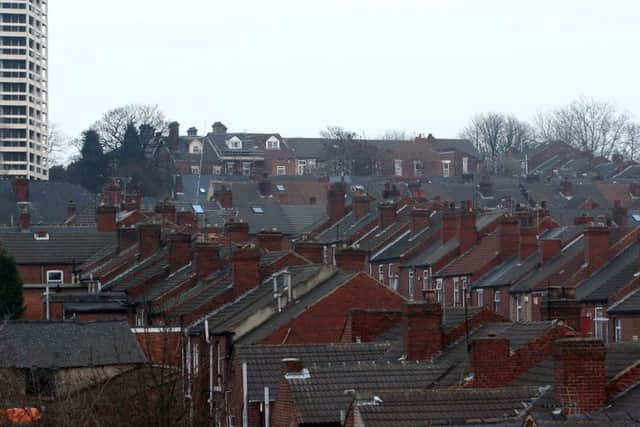How efforts to tell police bosses about South Yorkshire child grooming '˜fell on deaf ears'


The Independent Police Complaints Commission is considering adding a new strand to its investigation into the force’s handling of CSE cases in the town, examining ‘the opportunities that may have been missed to afford child sexual exploitation a higher priority’.
But it was claimed today that the length of time already taken by the watchdog to look into nearly 200 complaints about the conduct of police connected with the scandal was damaging public confidence in the police.
Advertisement
Hide AdAdvertisement
Hide AdDetails have been revealed in a new independent review of South Yorkshire Police’s handling of grooming cases which found there was a ‘lack of interest or professional curiosity’ from most senior officers in making child sexual exploitation cases a priority during the 2000s.


This meant that in neighbouring Sheffield, officers trying to deal with grooming were “seriously under-resourced” and when they asked their bosses for help, their requests “appear to have fallen on deaf ears”. This was put down to a focus on hitting national targets at the time for burglary, robbery and car crime.
The review said: “A generous interpretation of this situation would be to say that the senior command lacked professional curiosity and were focused instead on other areas of police performance, partially because they were being directed so to do by government and Home Office direction.”
The report by Professor John Drew, a former chief executive of the Youth Justice Board who looked at South Yorkshire Police between 1997 and 2016, found the force now handles child abuse cases in an ‘adequate’ way and had leaders who were “determined to learn from the past”.
Advertisement
Hide AdAdvertisement
Hide AdBut he said his review could only take account of ongoing Independent Police Complaints Commission investigations into the Rotherham scandal ‘in the most general of terms’ and there was ‘a wealth of material about policing in South Yorkshire’ he had not seen.


The IPCC is looking into around 200 allegations made by 40 complainants, and has 55 investigations ongoing relating to Rotherham.
These relate to 32 named officers who have been told they face misconduct or criminal proceedings, as well as 100 allegations where the officer was not identified.
In his report, Professor Drew said he had been sent a detailed letter by Med Hughes, chief constable of South Yorkshire Police between 2004 and 2011, and his deputy Bob Dyson in which they said national targets meant attention was focused ‘at times on a narrow range of priorities’.
Advertisement
Hide AdAdvertisement
Hide AdBut the pair added: “Public expectations are always that the police will deal with any concern, request or issue. The authors do not accept that a centralised performance management regime absolves or reduces the responsibilities of the local police command team.”


Their letter to Professor Drew, which has not been made public in full, also said that at no stage did members of the Police Authority - which included future Police and Crime Commissioner Shaun Wright - raise the issue of CSE with them.
The pair also stated that no-one from any of South Yorkshire’s local councils had raised the matter.
Professor Drew said: “It is hard to reconcile this account with the fact that there was growing evidence, that I have described, from within their own force about the scale of child sexual exploitation.
Advertisement
Hide AdAdvertisement
Hide Ad“I could find no written evidence that any of this had reached their desks, but there are minutes to show that some of these reports were considered at chief superintendent and superintendent level (and in 2011, immediately before Mr. Hughes’ retirement, at assistant chief constable level) which, to someone outside the force, strongly suggests that they ought to have heard something of the issue.


“Serving and former officers of SYP have told me that the national priorities were completely dominant within the force at this time, and in consequence there was little prospect of intelligence that might suggest a redirection of resources being given a hearing at the most senior level.
“Having listened carefully to all who wanted to talk about this issue, I am left with the firm impression that attempts to raise the profile of child sexual exploitation between 2000 and 2009 were met with lack of interest or professional curiosity by most officers in the more senior ranks of the force.
“Common sense suggests that this must have been in no little part due to the importance attached to national priorities.
Advertisement
Hide AdAdvertisement
Hide Ad“The leadership of SYP could reasonably have expected their local authority partners to know more about child sexual exploitation and to raise these issues with them.
“I could not find evidence of this happening at a senior level. But there was also no need, in my view, for the police to rely on information from councils and other partners when some of their own officers had a good grasp of the widespread nature of exploitation, and had those officers been given the opportunity, the senior ranks would have been informed of what was happening.”
He said officers had reported to him that there was a ‘very strong, top down organisational culture, in which little value was attached to information from the grass roots of policing passing up through the chain of command’ during the 2000s.
Professor Drew said: “Mr Hughes said that no officer wrote to him directly to describe the child sexual exploitation problem.
Advertisement
Hide AdAdvertisement
Hide Ad“Officers to whom I have put this comment, including those of quite senior rank, have smiled and asked me why anyone would want to expose themselves as making criticism of force priorities when it was so clear what these were.
“I have little doubt that the priorities of SYP were stated so clearly that officers felt there was only so far they could go to propose alternatives.
“In other words, there was little point in pursuing an issue that they knew would not find favour.
“And some officers say that this was particularly the case for an officer who was hoping for promotion. It was widely thought that going against the grain would not commend an officer to those more senior who were responsible for promotion in the early 2000s.”
Advertisement
Hide AdAdvertisement
Hide AdProfessor Drew also criticised the ‘slow pace’ of the IPCC investigation, saying there had been ‘at least one case where a complaint on a significant matter was withdrawn’.
He said the IPCC investigation will not be completed until well into next year ‘at the earliest’.
Professor Drew said limited resources meant the IPCC has only been able to appoint six lead investigators to its investigation, with up to three more due to join the team next month.
He said the situation has led to ‘frustration’ among complainants and put accused officers under ‘considerable pressure’.
Advertisement
Hide AdAdvertisement
Hide AdProfessor Drew added: “At worst this will breed cynicism in the public that the police cannot be held to account when their practice is poor. At best it still means that important lessons cannot be considered within a reasonable time of the events.
“I do not think anyone is happy with this state of affairs. I want to emphasise the damage that these delays have on public confidence in policing.”
According to the report: “In April 2016 the IPCC intends to develop a new element to their investigations when they will look at the opportunities that may have been missed to afford child sexual exploitation a higher priority.”
The IPCC said it was considering opening a new strand to its probe but that no decision has yet been made.
Advertisement
Hide AdAdvertisement
Hide AdIPCC Deputy Chair Rachel Cerfontyne said: “Our ongoing investigations into police handling of reported CSE and child abuse have the highest priority within the IPCC.
“The public demand – and the victims deserve – a rigorous and thorough investigation into the police response. We will be analysing Professor Drew’s report with interest to see if it identifies any matters that we are not already aware of and which may require investigation.
“These are complex investigations and we are keen to conclude our work as quickly as we can, but we also recognise that we are dealing with a significant number of complainants and police officers, and allegations relating to events that spanned a number of years.
“A number of the victims we are dealing with are also giving evidence in ongoing criminal investigations being conducted by South Yorkshire Police and the National Crime Agency. We are handling these matters sensitively and ensuring our investigations are thorough and coordinated, as that is what all parties want from any investigation into these matters.”